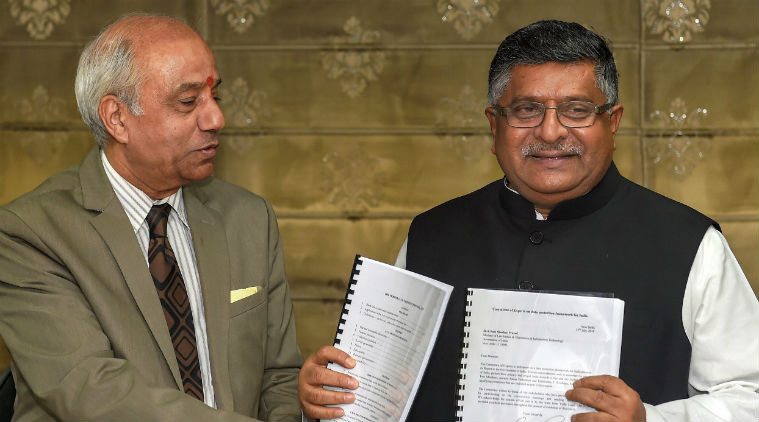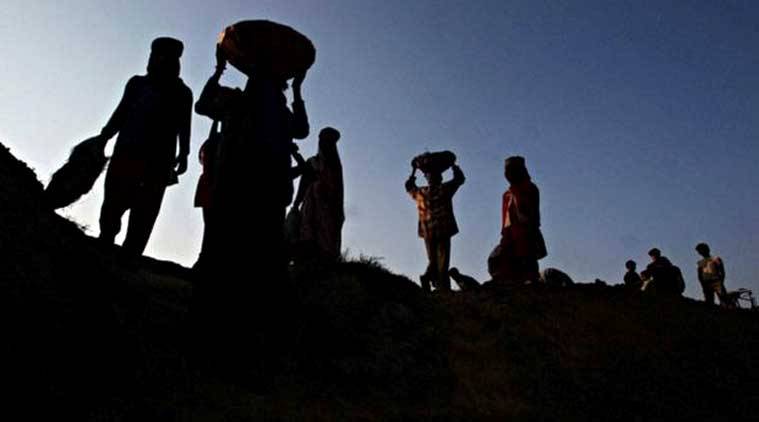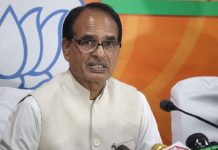
The contentious Personal Data Protection Bill has received the staunch criticism of the Opposition. The BJP also failed to manage the requisite numbers in the Rajya Sabha and therefore was unable to table it in the ongoing Winter-Session of the Parliament.
What is the Personal Data Protection Bill?
The Personal Data Protection Bill identifies and creates categories of what can be labelled as sensitive data. The list of sensitive data has been expanded to include data on finances, health, home, family, religion, sexuality, personal life as well as political leanings. The usage of “Critical Personal Data” as a distinctive category has not been defined under the present bill. The government shall hold the power under the ambit of the present bill to define what constitutes critical personal data. “Sensitive Personal Data”, has however been defined by the bill.
Experts working on data privacy have said that the Data Protection Authority(DPA) has not been allowed additional powers to classify definitions that will be governed by the central government. This could bring about major confusions because every regulator would have the power to define it in different ways.
A Bill of several controversial clauses
Clause 28 of the Data Protection Bill will entail a KYC-like norm for accessing the social media accounts of users, especially when the user is anonymous. The contemporary laws allow a person to be an anonymous user of the internet.
Moreover, Clauses 33 and 34 of the Personal Data Protection Bill imposed restrictions on the flow of sensitive and critical personal data. Clause 35 of the Personal Data Protection Bill allows the state unobstructed powers to access the personal information of an individual on the internet in the name of national integrity.
This is vague and not defined narrowly and can bring about sheer surveillance. It will also be all the more dangerous because we wouldn’t have any parliamentary safeguard to protect ourselves from the breaches of law.
It is Clause 91 of the Data Protection Bill which has added further to the controversy.Many experts have warned that this clause sets an unprecedented threat to individual privacy because the government is allowed to seek non-personal and anonymised personal data from companies.
In other words, the Personal Data Protection Bill will give the government the right to access all the business intelligence as well as the intellectual property of companies and those who work in the digital economy, for the development and planning purposes.
Many industry experts fear that once the Bill becomes law, it will prove damaging for many technology firms and Indian start-ups as it will discourage investors and stifle innovation by forcing companies to reveal business intelligence data from time to time.
The Personal Data Protection Bill was referred to a joint select committee of both the Houses of Parliament amid strong and vehement protests from those in the Opposition, which alleged that the Bill was crippling people’s rights to privacy.
While introducing the Bill in Parliament, Union Electronic and IT Minister Ravi Shankar Prasad said that such a bill would empower the government to demand personal and non-personal data from companies. The Opposition suggested that the bill be sent to the department standing committee and walked out to assert the protest against the Bill. The joint standing committee will have 20 members from the Lok Sabha and the Rajya Sabha. The Speaker has to recommend one member as the chairman of this committee.
It is expected that this committee will submit its report before the end of the budget session in the last week of January.
Many analysts and leaders of the Opposition have expressed strong criticisms against the Bill and say that it would allow the government agencies an exemption from falling under the ambit of its propositions. This they feel could lead to abuse of access to sensitive information. The bill would require all social media companied to verify and identify all their users.
It will depend on how the rules are framed, these companies might also be asked to report to the governments any account that is not verified. All these propositions are dangerous and hand over to the government an unprecedented power of surveillance over the citizens. This is perhaps why the government was so keen to keep under the sheets most provisions of the bill and then sent it off to a committee that it has strong control over.
The Bill will come up in the Parliament in the next session and we will have to see whether or not the government is able to get it passed.
What is extremely important at the moment is that the bill be thoroughly examined and the public be given an opportunity to speak on it and tell their representatives why they think such a legislation would be a threat to their fundamental rights.













